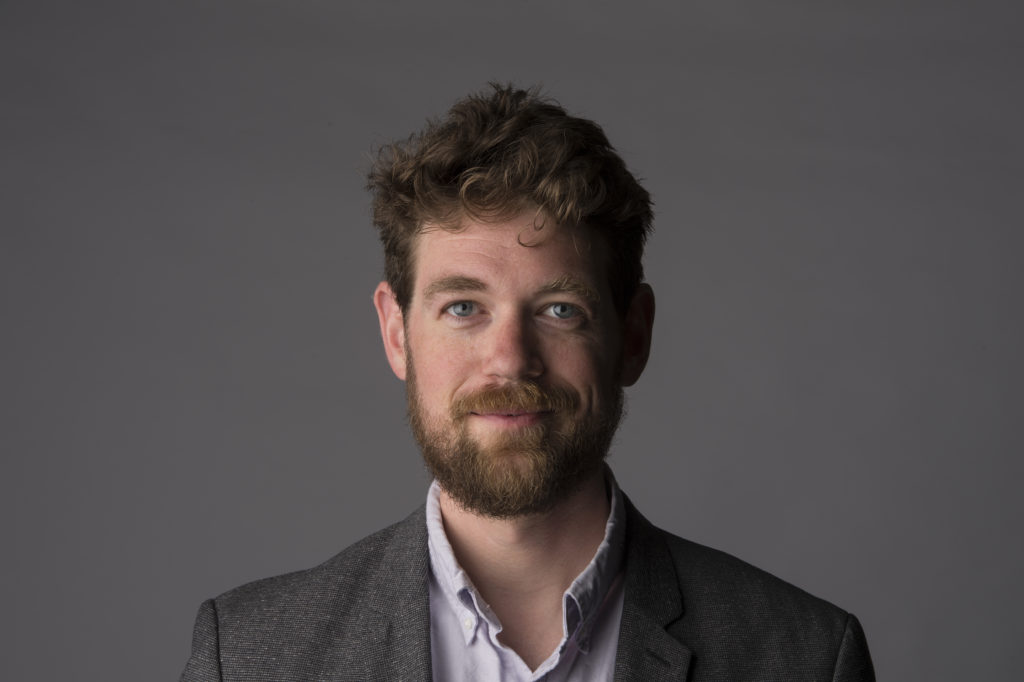Registration for this course is full.
Email us to add yourself to the waiting list in case someone cancels.
Wednesdays (biweekly), 7pm–9:15pm ET,
February 2 to April 27, 2022
Department
Creative Nonfiction
Instructor
Richard Warnica
Capacity
12 seats (0 remaining)

This is an intensive writing course for intermediate and advanced journalists. Students will learn the craftsmanship of reported features by writing or revising a story of their own under the mentorship of acclaimed journalist Richard Warnica. Through lectures, workshopping, and one-on-one feedback, he’ll teach students how to seamlessly blend the tools of investigative journalism, essay writing, and narrative non-fiction, as well as the traditional reporting beats like science, politics, and justice, to produce work that sounds distinctive and makes a lasting impact.
The emphasis in this course will be on advanced techniques. We will study the best, most distinctive non-fiction writers working today. We will mine their work for tools we can bring to our own writing. We will look at how voice, rhythm, structure and reporting can all be deployed to make readers feel something real. The goal is to come out of this class with the best piece of feature-writing you’ve ever done, workshopped by your peers, and edited by a professional. More importantly, you’ll leave motivated to push your writing into bigger, better and weirder places as you move forward in your career.
The course has two streams which will run simultaneously. Writers with a story idea they want to develop into a first draft (Stream A); and writers who want to take an unpublished first draft to the next level (Stream B).
Prerequisite: To thrive in this class, you should have some experience in journalism or non-fiction writing. Not sure it’s for you? Feel free to reach out and ask the instructor directly: rwarnica@gmail.com.
The seven weeks I spent learning about voice and feature writing with Richard and an amazing group of classmates reignited my passion for the craft of journalism after an isolating year chasing the news cycle from my apartment desk. I have a clearer vision of the kinds of stories I want to write and the skills I need to get there, plus the tools to level-up my everyday journalism at work.
—Moira Wyton, Health Reporter at The Tyee
COURSE SCHEDULE:
Biweekly: February 2 – April 27, 2022
Wednesdays, 7pm–9:15pm ET (biweekly)
- Class 1 (Feb. 2): Voice: What does your writing sound like?
- Class 2 (Feb. 16): The essay in reporting and reporting in the essay: How to focus what you’re trying to say.
- Class 3 (Mar. 2): Beginnings: Looking beyond the anecdotal lede/nutgraph
- Class 4 (Mar. 16): The Spine: Linking together the disparate threads of your research through elegant and effective structure
- Class 5 (Mar. 30): Reporting for advanced feature writing: Tools and tips for mining the details and knowledge you need
- Class 6 (Apr. 13): Writing redux: Advanced tips and tools to give your writing voice and flow
- Class 7 (Apr. 27): Macro and micro editing for language, voice and flow; Students share a favourite piece by another writer
Thank you for the chance to be in community with other journalists, it has done wonders for my motivation to continue growing as a journalist and writer during such a tumultuous time.
—Moira Wyton, Health Reporter at The Tyee
ABOUT THE INSTRUCTOR
Richard Warnica is currently a business feature writer at the Toronto Star and a part-time professor of journalism at Humber University, where he teaches undergraduate feature writing. A finalist for several National Newspaper Awards, Richard has worked as both writer and editor for such outlets as Politico, The National Post, Canadian Business, and Maclean’s. Known for his deep, sometimes obsessively, reported features, long and short, he’s covered the justice system, popular culture, health issues, the fall of Rob Ford, and the rise of Donald Trump. He was a 2010 Investigative Reporting Fellow at the Tyee Solutions Society, and the 2018-19 Webster/McConnell Fellow at Massey College, at the University of Toronto. He lives in Toronto with his wife and daughter.
ACCESSIBILITY
Pandemic University is committed to offering a fulfilling and inclusive education. Classes are held via Zoom with Closed Captioning features enabled through auto-transcription technology. A teaching assistant will be present to correct transcription mistakes and assist in other ways. The course includes workshops and class discussions, thus students are required to participate through audio; accommodations can be made for people with speaking or other disabilities if they inform us ahead of schedule. Video is encouraged of all students in order to optimize everyone’s virtual classroom experience.
ELIGIBILITY AND PREREQUISITE
This course is intended for committed students. It’s recommended for people with some experience in journalism or non-fiction writing.
Please be on time. If you’re going to be late, email your instructor and T.A. as soon as possible. The course is intended for live participation, however, if you can’t be present for a class, or must leave early, a recording will be provided in the student folder the morning after.
You’re expected to be present and intellectually curious during class time. In addition to attending each class, you are expected to be available across all dates to complete your writing assignments. If your work is more than 48 hours late, however, you may or may not get feedback.
REGISTRATION
After checkout, you’ll receive a receipt with a link to download your syllabus, which will include Zoom passcodes, pre-class homework, and additional course information. You will also receive an emailed reminder a few days before your first class.
REFUNDS
Space is limited to 12 students. Anyone wishing to cancel their registration have until Jan. 24, 2022 to receive a guaranteed refund. If you cancel between Jan. 25 and Feb. 1, 2022 we will only offer a refund if and after the vacated spot is filled. No refunds whatsoever will be offered after the course begins on Feb. 2, 2022. Violations of the Code of Conduct may also result in your removal from the course without compensation.
CODE OF CONDUCT
Although PanU is technically a fake university, we’re committed to high standards of artistic integrity, quality education, and maintaining a safe virtual environment for students. Abusive behaviour toward classmates or instructors will not be tolerated at any point during the course, including in private messages, and will result in expulsion without refund.
Other violations that could have you expelled from this course include: refusing to participate in group workshops; plagiarism and misrepresentation of others’ ideas as your own; racism, sexism, homophobia, and transphobia either in your notes (written or spoken) or in your work; sharing recordings of classes; sharing classmates’ work without their consent.
The final say on whether or not you continue in class belongs to the instructor alone. If you have any questions, email info@pandemicuniversity.com.
